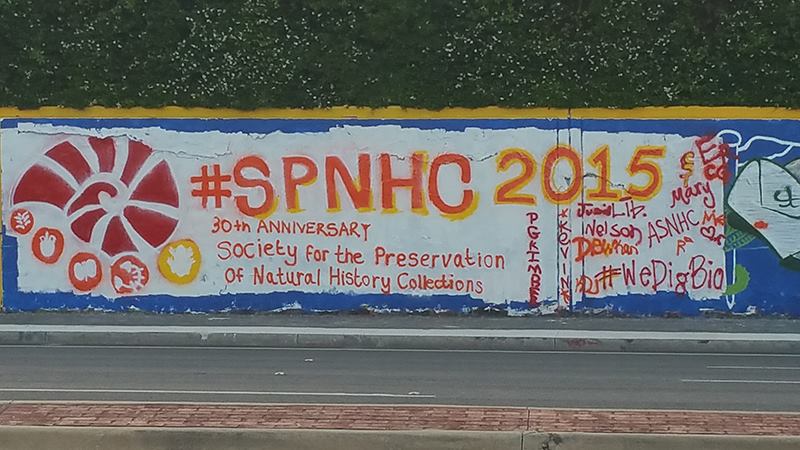The Florida Museum of Natural History and partners hosted the 30th Annual Meeting of the Society for the Preservation of Natural History Collections (SPNHC) from May 17-23, 2015, at the Hilton University of Florida Conference Center in Gainesville, Florida. The theme of the conference was “Making Natural History Collections Accessible Through New and Innovative Approaches and Partnerships”. iDigBio had a large presence at the meeting and supported a reception for staff from TCNs, the plenary session, two symposia, two special interest groups, DemoCamp, and a conference exhibit.
Accessible Through New and Innovative Approaches and Partnerships”. iDigBio had a large presence at the meeting and supported a reception for staff from TCNs, the plenary session, two symposia, two special interest groups, DemoCamp, and a conference exhibit.
iDigBio’s activities at SPNHC kicked off with a reception for TCN participants and iDigBio staff on Monday evening in the exhibit hall for the Florida Museum of Natural History. Participants were encouraged to reach out and make new connections and collaborations.
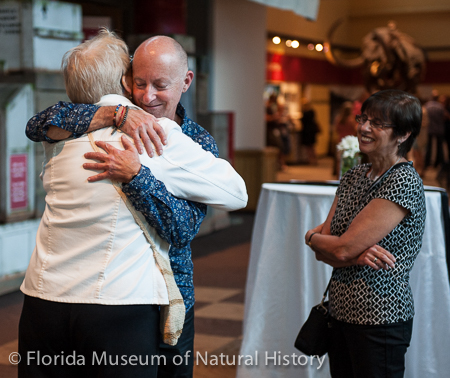

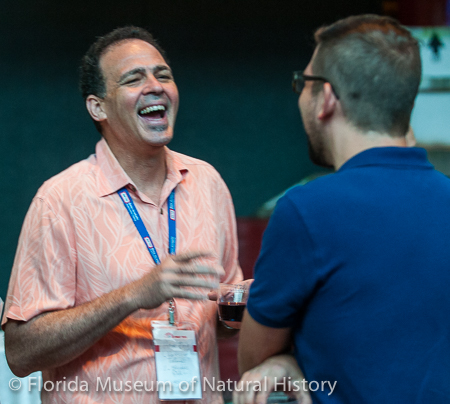
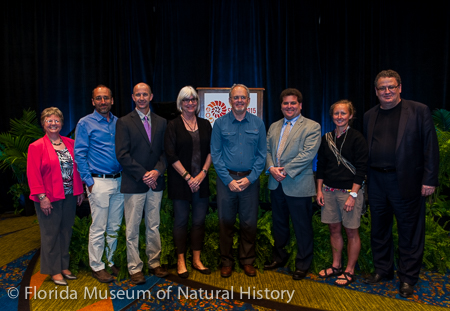 Tuesday was the official first day of SPNHC 2015 and began with a Plenary Session entitled “Collections in the 21st Century.” The Plenary was sponsored by the Natural Science Collections Alliance (NSCA), Biodiversity Collections Network (BCoN) and iDigBio. You can view a pdf of the conference program for a list of speakers and iDigBio's Vimeo to access recordings of the presentations.
Tuesday was the official first day of SPNHC 2015 and began with a Plenary Session entitled “Collections in the 21st Century.” The Plenary was sponsored by the Natural Science Collections Alliance (NSCA), Biodiversity Collections Network (BCoN) and iDigBio. You can view a pdf of the conference program for a list of speakers and iDigBio's Vimeo to access recordings of the presentations.
Wednesday was day one of a day-and-a-half symposium entitled “Specimens Full Circle: Collection to Digitization to Data Use”. This symposium had four tracks: collection of museum specimens, digitization (includes imaging and other media), use of the resulting digitized data in research, and digitization project management. To learn more about this symposium, read Deb Paul’s blog post, and visit the “Specimens Full Circle” wiki page.
On Thursday, presentations for the “Specimens Full Circle” symposium continued (visit the wiki to learn more about day two's presentations), and the all-day symposium “iDigBio Small Collections Network: Contributions of Small Natural Historical Collections” took place. This second symposium was jointly sponsored by iDigBio and the Small Collections Network (SCNet). Presentations from Small Collections fell into three tracks: small collections - the key to educating future generations of scientists; digitization practices and challenges in small collections and museums; and reaching out to small collections. To learn more, read Gil Nelson’s blog post (coming soon) and visit the symposium’s wiki.
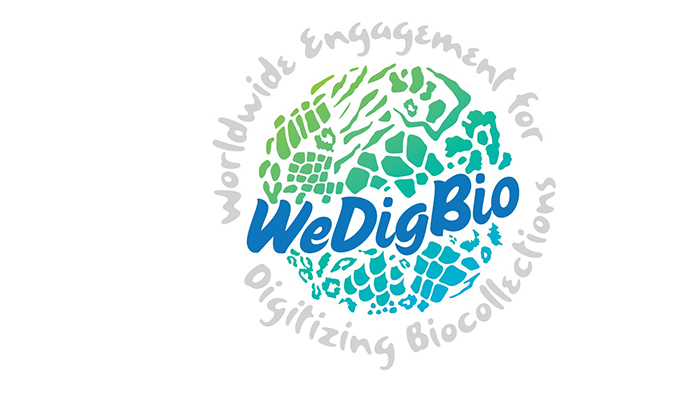 Worldwide Engagement for the Digitization of Biocollections (WeDigBio) hosted a Special Interest Group session Thursday afternoon that gave participants the opportunity to learn more about WeDigBio and discover how individuals and institutions can get involved in this new initiative. To learn more about WeDigBio, visit their newly designed website.
Worldwide Engagement for the Digitization of Biocollections (WeDigBio) hosted a Special Interest Group session Thursday afternoon that gave participants the opportunity to learn more about WeDigBio and discover how individuals and institutions can get involved in this new initiative. To learn more about WeDigBio, visit their newly designed website.
DemoCamp also occurred on Thursday afternoon and provided a venue for promotion of technological solutions to advance the field of museum curation and specimen digitization, with broad applications for biology and biodiversity informatics. Live demonstrations were welcomed in any technologies relevant to biologists, collections managers, or biodiversity information managers, as well as technologies that enable the broader use of data, or enable citizen scientist participation. DemoCamp included demonstrations of features and capabilities of Lifemapper, Arctos, and Specify. Visit the DemoCamp wiki to hear recordings.
iDigBio helped to conclude the meeting with a Special Interest Group session on Friday afternoon entitled “TCN Coffee Klatch.” Current TCN participants along with iDigBio personnel and Roland Roberts from NSF gathered to discuss ADBC, TCNs, and iDigBio, and how to get involved in the national digitization effort. The informal Q&A drew 30 participants and facilitated a productive discussion on not only proposals, but also NSF expectations for TCN collaborators once funding is awarded. A special thanks to Roland Roberts and to all of our TCN participants!
Visit the SPNHC 2015 website to learn more about the meeting, and stay tuned for more information on SPNHC 2016!
